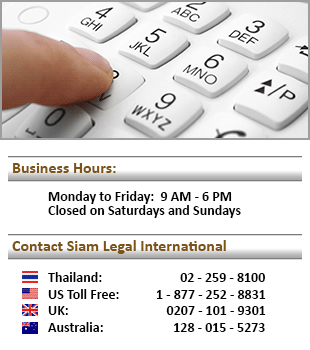Due Diligence in Thailand. Due diligence is an essential stage in every investment or business deal, and this is especially true in Thailand’s dynamic and varied economic environment. Whether investing in real estate, forming partnerships, or buying companies, doing extensive due diligence guarantees that every facet of the deal is looked at, reducing risks and promoting well-informed decision-making. This article explores the value of due diligence in Thailand, discussing its numerous facets, optimal procedures, and the part it plays in the prosperity of businesses.
I. Being Aware of Due Diligence
A. Definition: A business or investment opportunity’s legal, financial, operational, and regulatory elements are all investigated and evaluated as part of the thorough inspection and verification process known as due diligence.
B. Risk Reduction: Finding and evaluating possible risks related to a transaction is the main objective of due diligence, which enables parties to take informed choices and put risk mitigation plans into effect.
II. Thailand’s Due Diligence Types
A. Extensive Legal Research:
confirming the company’s legal standing and compliance with Thai legal requirements.
checking the validity and enforceability of agreements, licenses, and contracts.
B. Due diligence in finances:
evaluating the company’s financial situation by carefully reviewing its cash flow, debt payments, and financial statements.
determining any unpaid debts, tax obligations, or financial hazards.
C. Taking Operational Risks:
assessing the efficacy and efficiency of the company’s procedures and activities.
recognizing any operational issues or flaws that might affect output.
D. Due diligence in the market:
examining market trends, rivalry, and prospective expansion prospects.
Recognizing consumer preferences and demographics within the Thai market.
III. Thailand’s Best Practices for Due Diligence
A. Assist Regional Experts:
Work together with regional accountants, attorneys, and business specialists who understand the specifics of the Thai legal system.
Use their local expertise to negotiate the complexities of culture, law, and regulation.
B. Review of Documents:
Examine all pertinent papers carefully, including financial records, contracts, licenses, and permits.
Verify that every piece of paper is genuine, current, and adheres to Thai legal requirements.
C. Assessments and Site Visits:
Make on-site inspections to evaluate the company’s operational and physical assets.
Point up any differences that exist between the information that has been provided and the real situation.
D. Survey Important Parties:
Conduct interviews with important stakeholders, workers, and executives to learn more about the management style, corporate culture, and any problems.
Verify the accuracy of the data by conducting many interviews.
IV. Exercise Caution in Real Estate Deals
A: Title Deed Confirmation
Verify property titles thoroughly to ensure their legitimacy and validity.
Determine if the property has any encumbrances or legal difficulties.
B. Adherence with Zoning and Land Use:
Verify that the property conforms with all applicable land use and zoning laws.
Check to see if the property’s proposed use complies with local planning regulations.
C. Environmental Factors to Be Considered
Examine any possible environmental hazards connected to the property.
Determine which environmental rules might affect the property’s development or usage.
V. Final Thoughts
Due diligence becomes essential for investments and transactions to be successful in Thailand’s complicated business environment. Through the implementation of a comprehensive strategy that takes into account legal, financial, operational, and market factors, companies and investors may confidently negotiate the complexities of the Thai market. Assuring that the due diligence process is complete and efficient requires a number of critical actions, including hiring local specialists, carefully going over documents, and performing on-site inspections. In the end, doing due diligence helps ensure that company ventures in Thailand are successful in the long run by reducing risk, making educated decisions, and investing diligence.


